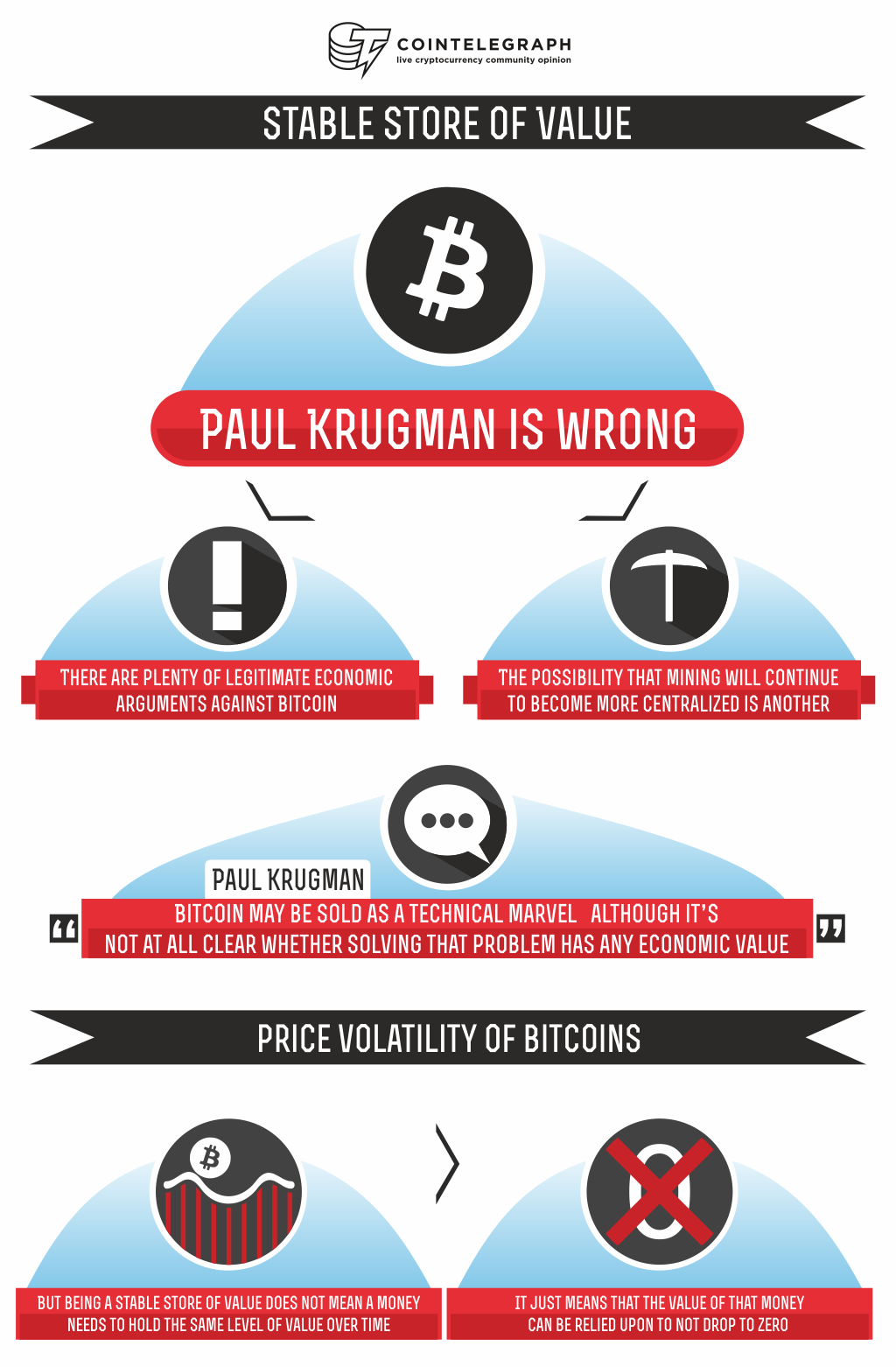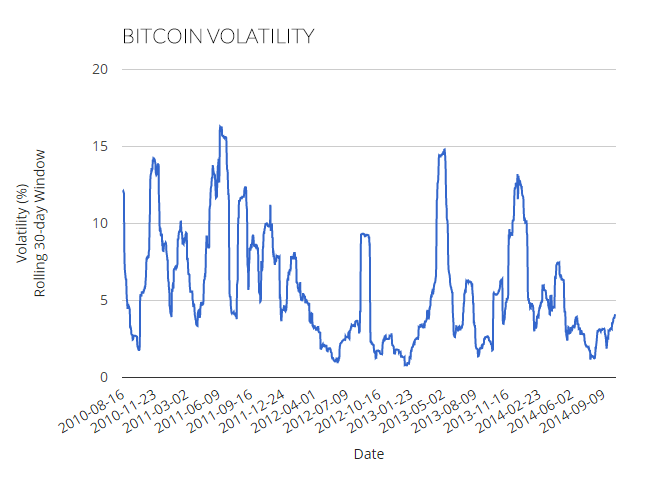There are plenty of legitimate economic arguments against Bitcoin. A level of inequality that makes the U.S. look like a “workers’ paradise” is one. The possibility that mining will continue to become more centralized is another. And, while I don’t buy it myself, concerns over the protocol’s deflationary nature are justified if one believes that our collective understanding of economics and monetary policy will be at the same level in 2140 as it is today.
So when I saw that Paul Krugman had written another piece attacking Bitcoin, I was surprised by his justification. With so much else to attack, he continues to focus on a technicality
In The Long Cryptocon, Krugman writes:
“Bitcoin may be sold as a technical marvel, and it does indeed solve an interesting information problem — although it’s not at all clear whether solving that problem has any economic value.”
The issue of Bitcoin’s “value” has been a long-running theme with Krugman. In last December’s Bitcoin Is Evil, he wrote:
“I have had and am continuing to have a dialogue with smart technologists who are very high on Bitcoin — but when I try to get them to explain to me why BitCoin is a reliable store of value, they always seem to come back with explanations about how it’s a terrific medium of exchange. Even if I buy this (which I don’t, entirely), it doesn’t solve my problem.”
This is not an uncommon argument against Bitcoin. A while back, I wrote an article about why economists hate the subject. The whole thing was inspired by a letter I sent to an old professor, asking for their opinion on the phenomenon. “I am not interested in talking about Bitcoin,” they responded, “after its market collapse this week...I don't think there is much to credibly say about it as a store of real value.”
And a recent article by the Motley Fool argues:
“Considering Bitcoin's extreme volatility since its inception, the asset gives the user absolutely no stability, or no store of value, a key component of any functioning currency.”
Now these people are correct when talking about the price volatility of bitcoins. It’s popularly known as a roller coaster ride for a reason - check out the historical graph on this page.

But being a stable store of value does not mean a money needs to hold the same level of value over time. It just means that the value of that money can be relied upon to not drop to zero.
By focusing on a volatile exchange rate economists like Krugman are missing the real story about Bitcoin’s ability as a store of value. While its price has fluctuated dramatically, bitcoins have actually been a reliable store of value since before you could buy anything for them.
In October of 2009, a full 7 months before the first Bitcoin purchase, New Liberty Standard posted an exchange rate of US$1=1,309.03 bitcoins. Going by that date, bitcoins have been a stable store of value for over half a decade.
Krugman and other economists can postulate all they want about how Bitcoin has no value, but money is socially defined. If society approves of something (via markets) as a medium of exchange and a store of value - it is money. Markets have decided that the “information problems” solved by the Bitcoin protocol and backed by its mathematical integrity have had economic value since 2009.

Now if you think I’m being loose with my definitions, Krugman himself said in 2010 when writing about the increasingly electronic world money supply that, in the modern world, “the definition of money is increasingly vague.”
On the subject of Bitcoin, maybe he should take his own advice that:
“...people who spend too much time thinking about money in general — specifically, on trying to decode money’s true meaning and find the real, true measure of the money supply; they end up starting to believe that everything in economics hinges on getting that measure right, when in fact almost nothing does.”
Bitcoin (and its stability as a store of value - be that at $10, $100, or $1000) is not going anywhere. Krugman should accept that and focus on how this technology can be proactively applied to his discipline. Or, if he thinks that’s impossible, at least stop arguing semantics and come up with a legitimate argument.
